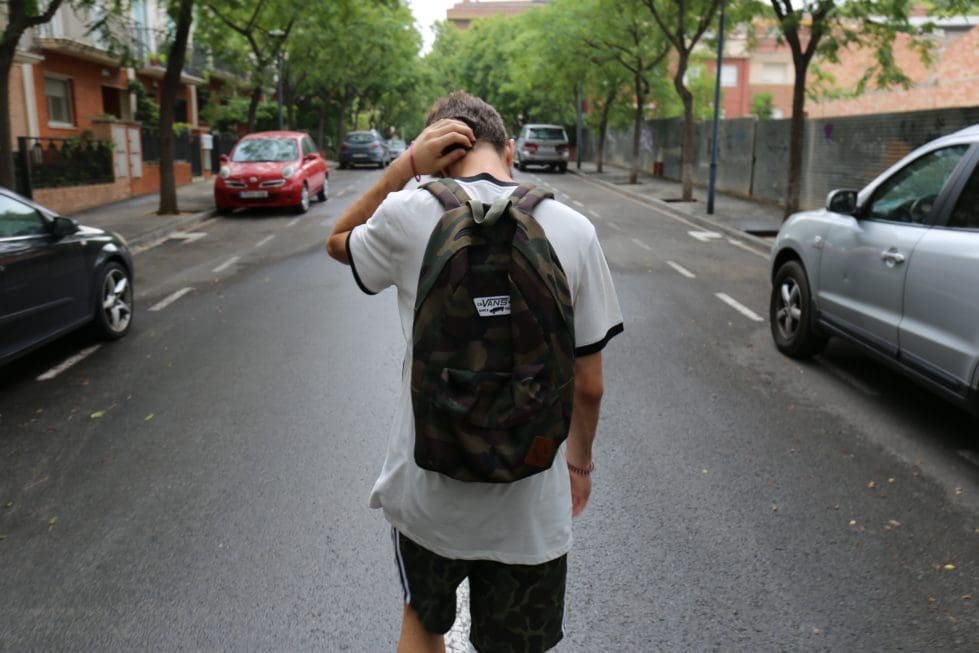

Students shouldn’t be punished in school when they already are in trouble outside of it, says Rep. Sherry Dorsey Walker. Photo by Jesus Rodriguez/Pexels
A fiery discussion in the state House of Representatives Education Committee about a bill that would prevent schools from being told about students involved in certain crimes away from campus ended Wednesday with the bill being tabled.
The sponsor of House Bill 396, Rep. Dorsey Walker, D-Wilmington, told the committee that the bill was designed to prevent double punishment.
The bill was met with lots of confusion about what was and what wasn’t included in the bill, and then consternation that a school might be kept in the dark about issues that some representatives think that schools should know about.
Rich Collins, R-Millsboro, said that it’s better to be safe than sorry when it comes to students who are mixed up with trouble.
“In each case of recent school shootings, it would come out that there had been all kinds of indications that the student or shooter had issues that maybe someone should have picked up on,” he said. “I know there has been a lot of after-the-fact criticism of people not taking action when they thought or knew that something was going on.”
Right now, when schools are notified by the state that a student has been arrested or charged, the student often is subjected to another layer of penalties imposed by school policy, such as expulsion, suspensions and removing students from class.
Walker’s bill would still require the attorney general to notify a student’s school if the incident included a violent felony, crimes that happen on school property or at a school event, and incidents where the student and victim attend the same school.
Those violent felonies include some but not all charges of: physical and sexual assault, robbery, hate crimes, arson, gun charges, drug dealing, carjacking, homicide and others. Find the full list here.
After a lot of confusion over what would now be omitted from the current list, Kristine Lannelli, policy director for the Department of Justice, spoke to clarify.
Under the bill, she said, the following misdemeanors would be removed from the report that schools’ get to review:
- Offensive touching
- Reckless endangering assault, third degree
- Abuse of a sports official
- Terroristic threatening
- Indecent exposure
- Incest
- Unlawful sexual contact, third degree
- Unlawful imprisonment, coercion
- Offenses involving property including reckless burning or exploding
- Cross or religious symbol burning
- Offenses against public health order and decency, including hate crimes, harassment, cruelty to animals and then
- Offenses involving deadly weapons including carrying a concealed dangerous instrument such as knives and guns
The list surprised even Walker, who thought that gun charges would be included.
“We need an amendment then,” Walker said. She said she would work with the Department of Justice in order to include gun charges in the attorney general’s report to schools.
A concealed dangerous instrument is defined as something that would cause death or physical injury, such as a firearm, bomb, knife of any sort, switchblade knife, billy, blackjack, bludgeon, metal knuckles, slingshot, razor, bicycle chain or ice picker, House Attorney Mary Sherlock said.
HB 396 also would require the attorney general to follow up any reports on a student with follow-up to let the school know within two days of the case being resolved.
Walker said there currently is no requirement to update the school on what happens in a case.
One focus of the bill is to keep students in classes and learning. Walker said students unnecessarily separated from the school environment are likely to become more involved with the justice system.
“I would like to encourage everyone who is against this bill to take a look at themselves,” she said. “Think about when you were a child. You were not a perfect child. Yet a lot of times when we become adults, we forget what it was like to be a child.”
The bill, Walker said, would prohibit the attorney general’s report to be sent to the school for “basically crimes of moral turpitude.”
Certain crimes, while not acceptable, should not ruin a child’s future or take them away from education, she said, especially because those students may face even more difficult challenges in life than others.
“I’m not saying that stealing is OK,” she said, “but that’s not something that needs to be sent to the school stating that a child stole something from the local corner store just to feed his or her family.”
After a rowdy back and forth where legislators were trying to figure out what exactly would be removed from the attorney general’s report, the House turned to Brian Moore, policy director for the Delaware Department of Justice, about what happens now. He oversees school climate and discipline for the Department of Education.
This is how the current process works, he said:
- Each morning, a district is informed of any student who was arrested the previous evening with a list of charges via the attorney general report.
- This report goes to the district office or a designee of the superintendent to review.
- District office or designee then conducts a threat assessment to determine if there is a risk to the lives of the other students that are in the building.
- If there is a risk, the district office initiates due process, notifies the family and reaches out to talk to the student and find out what occurred.
- The district might make a determination that the student would best be served in an alternative program pending adjudication or pending whatever is occurring.
- If there is no risk, the schools and school resource officers take a restorative approach for the student to try to keep this behavior from happening again.
In the example of a student stealing food from a local grocery store, “more than often, our response would be to ask the student if they need help getting food,” said Moore.
Last year, the state’s districts received 980 attorney general reports.
Of those, Moore said, just 12 were acted upon by districts and were offered due process and asked to go to an alternative site or possibly be involved in a disciplinary process.
Lannelli, of the Department of Justice, said it could not be supportive of the bill as written.
State Rep. Kimberly Williams, D-Newark, chair of the House education committee, told Walker she thought Walker would have worked out details with the Department of Justice before bringing the bill to the committee.
Walker then asked to have the bill tabled so she could work on the concerns raised and craft a substitute bill.
In other education-related actions:
- SB 100, which would establish a 15-member Public Education Compensation Committee to review the state’s educator compensation structure to address teacher recruitment and retention, was passed to the House floor. If it passes, it would go to the governor for this signature.
- HB 204, which would require all potential or current employees of child care services to complete a fingerprint background check, passed the Senate Education Committee and will now head to the Senate floor.
- HB 318, which would give an active-duty military member and/or spouse an expanded certification period as a nonpublic school teacher, specialist or administrator employed by the state as well as public education employee, adult education employee and prison education employee, passed the Senate Education Committee and will now head to the Senate floor.


Raised in Doylestown, Pennsylvania, Jarek earned a B.A. in journalism and a B.A. in political science from Temple University in 2021. After running CNN’s Michael Smerconish’s YouTube channel, Jarek became a reporter for the Bucks County Herald before joining Delaware LIVE News.
Jarek can be reached by email at [email protected] or by phone at (215) 450-9982. Follow him on Twitter @jarekrutz and on LinkedIn
Share this Post








